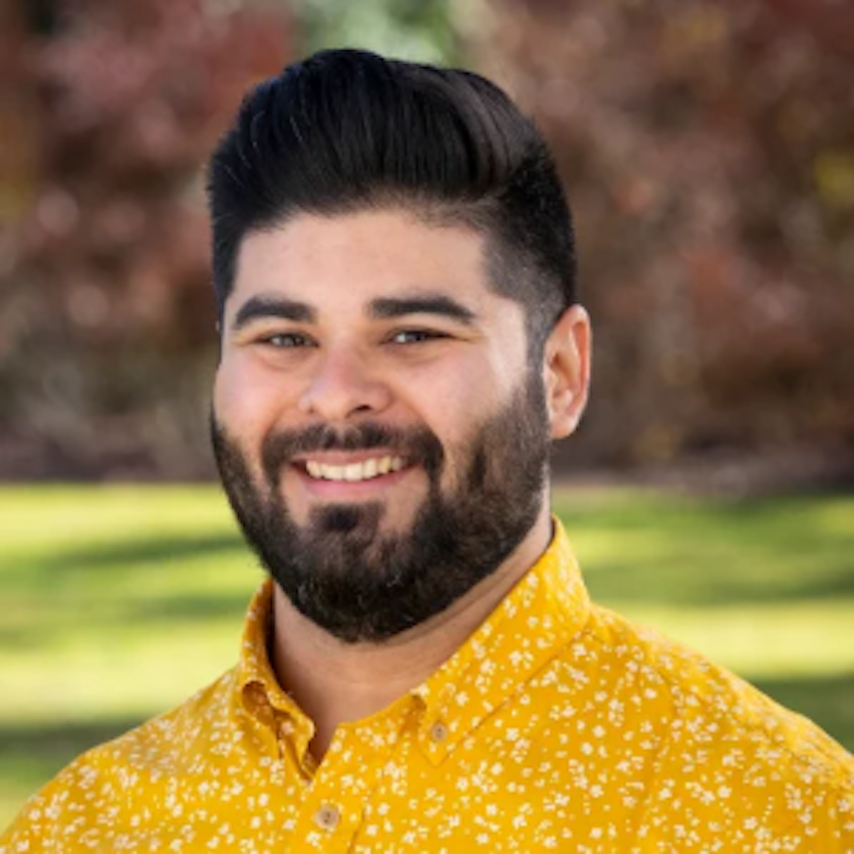Steven Arciniega


“Virtual reality and artificial intelligence are absolutely essential tools for the future of education. They allow individualized learning. They intensify, deepen, and accelerate the educational experience. And they show students what the future looks like and how they can be part of it.”
When Professor Johannes Moenius first placed his students into a virtual reality (VR) headset, he wasn’t simply chasing the latest tech trend. He was chasing something deeper—a way to bring human connection and rigorous thinking into online learning.
Moenius, who teaches global business and economics at University of Redlands, uses VR and artificial intelligence in his courses to minimize the “loss of immediacy” that occurs in online education.
“Students online don't get the same experience as those on-ground—they can turn their cameras off and be doing other things outside the lesson,” he said. “With VR, we have the ability to bring them into a virtual classroom, so the experience for online students mirrors that of those on-ground. With the technology, we can bring back the immediacy of being in the same space while being far apart, which brings collaboration, and equalizing the playing field by giving students the same access and bridges both the economic and digital divide.”
Moenius has become one of Redlands’ foremost innovators, integrating technology into his global business classes. His goal isn’t just to dazzle students—it’s to future-proof their careers and equip them with the skills that machines can’t replace.
“In a world of AI, the most important skill a student needs is to become a self-learner,” he said. “Only if they’re self-learners will they be able to adjust to the incredibly fast-paced change we’re all experiencing right now.”
It’s why Moenius teaches students what he calls the “Four C’s”: communication, creativity, critical thinking, and competition. Whether they’re navigating a virtual city, evaluating a 3D model of heavy machinery for international sales, or collaborating across continents in a virtual classroom, he wants Redlands students to leave with more than technical know-how. He wants them ready to thrive in a world that’s changing faster than ever before.
“In my classroom, students go to a cafe and ask an AI agent (that is impersonated) to learn about work opportunities in other countries, or negotiate a rental agreement with a virtual agent,” he said. “Understanding that VR and AI are core technologies for opening new opportunities is essential. I also what them to understand that these technologies are tools that can be employed as partners in their education and work experience, can help them create connections across the globe, and the importance of knowing these tools for their future.”
But as much as Moenius embraces technology, he’s clear-eyed about its ethical risks, including AI being a powerful partner or dangerous tool.
“We’re talking about an emerging field,” he said. “AI still has hallucinations. It draws conclusions that sometimes are not correct. Students are required to make sure that what the AI delivers is actually truthful.”
To drive the point home, Moenius requires his students to use AI for all their homework. It’s a radical move designed to demystify the tool and to teach responsibility. Students must fact-check their AI-generated work, cite it properly, and be transparent about its use.
“This completely levels the playing field again,” he said. “I want them to understand the power of that tool, the capabilities, and also what is fair use and what’s not fair use. They need to be honest about it.”
His approach doesn’t shy away from hard truths. Moenius warns that AI is already devouring entry-level jobs and transforming industries worldwide. Yet he’s determined to make Redlands a place where students don’t just react to change, they help shape it.
“Virtual reality and artificial intelligence are absolutely essential tools for the future of education,” he said. “They allow individualized learning. They intensify, deepen, and accelerate the educational experience. And they show students what the future looks like and how they can be part of it.”
At Redlands, that future is already in motion—for Moenius, it’s not about shiny gadgets or flashy demos. It’s about preparing students to navigate a complex, interconnected world and to do it with integrity.
“If they ignore all these things,” he said, quoting Mikhail Gorbachev, “life may not be kind to them in the future. He who comes late may be punished by life itself.”
For Johannes Moenius, it’s a lesson worth teaching in any reality.
Learn how students are future-proofing their careers—discover Business at Redlands.
